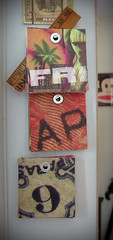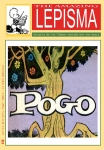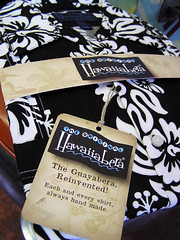Wednesday, September 22, 2004
All In: Good Fun
ATLANTIC CITY, Sept. 20 - Sunday night, three of the luckiest guys alive finally caught a break and headed up to a room at the Borgata casino here for a rest in the middle of a long day at the World Poker Tour. In the past few years these three have each won millions of dollars - the talk generally gets less specific when losses come up - playing Texas Hold 'Em, a card game that has stormed across television and computer screens and put poker in the middle of the table as never before.
The men are three of the kings of so-called no-limit poker, a format in which any player at any time can put all his money in the pot - all in, as they say. No-limit poker is as indigenous to America as jazz, and full of just as much improvisation. Apple pie is fine, and baseball is always good on a sunny day, but what could be more American than betting $1 million on the flop of single card?
Although pitiless when they sit across the table from one another for a game of Hold 'Em, the three, Doyle Brunson, T. J. Cloutier and Gus Hansen, are friends, as friendly as professional card players get. They had mixed results playing the seven-card game at the tables that day, in part because they had to play through a clutter of amateurs that the poker craze has created. Now that the pros finally had some time to themselves, give or take a reporter, they could unwind at last. And play some cards.
Away from the television cameras and clamoring fans, they opted for a change of pace, plopping down on the king-size bed as Mr. Hansen dealt 13 cards to each player. Chinese poker was the name of this game, and it required that they arrange three hands of poker out of the cards they were dealt, in progressively better hands. The room went silent for five seconds after the deal as each man clicked through mathematical possibilities measured in thousands. And then they played nickel poker, with the word "nickel" meaning $500 and "dime" meaning $1,000. Many thousands of dollars changed hands in a matter of minutes.
Mr. Hansen, a former top backgammon player who came out of nowhere or, more specifically, Denmark, in 1997 as a professional poker player, won the first hand. Mr. Brunson, an old-school rounder who came up the hard way - and won the World Series of Poker, twice - was gracious in defeat.
"You won it all as usual, which is something I will have to become accustomed to," he said.
He and Mr. Hansen have seen a lot of each other. This past summer they, with six other of the world's best card players, each anted up $400,000 for a professional death match on Fox Sports Net called the "Poker Superstars Invitational Tournament" - no amateurs or Internet players allowed. The last episode of the first round was broadcast on Sunday, with Mr. Hansen riding a hot hand to victory. A new round begins next Sunday.
In the game of Hold 'Em, each player receives two of his own cards and then bets progressively over the next five common cards on the table - three cards known as "the flop," a fourth known as "the turn" and then the fifth, "the river." Millions of new players are flooding virtual Hold 'Em games on the Internet and have stormed the casinos. The Borgata alone is in the midst of expanding its poker room to 85 tables, from 35.
But these pros aren't new to the game. They are all self-described degenerate gamblers who just happen to be better at the game than civilians. Their every waking minute is spent in pursuit of action, not always at the poker table. If the three of them came across two worms washed on a sidewalk after a rainstorm, they might be compelled to stop and bet on which one makes it back to the grass first.
Someone brought up the evening's National Football League game: Miami would square off against Cincinnati in a few hours. Mr. Brunson, who is famed for putting down as much as a $250,000 on any given day on sports events, asked Mr. Hansen who he liked in the game. Mr. Hansen said he had no strong preference, but Mr. Brunson told him to pick anyway. Mr. Hansen chose Cincinnati to beat the points and the under, which is a pick based on total points. And with that, the bet was down: $30,000. Who picked whom was clearly beside the point.
"We all like the action," Mr. Hansen said later at the casino's buffet, taking in mouthfuls of mashed potatoes off a butter knife as he spoke. "If nothing is at stake, what's the point?"
That does not explain why millions of people are sitting in front of their televisions watching other people play cards; the World Poker Tour was the Travel Channel's highest rated show last year. (Among the other shows now on the air are ESPN's "World Series of Poker" and Bravo's "Celebrity Poker Showdown.") Poker became television fodder when the toy mogul Henry Orenstein invented a camera technology that allowed viewers to see a poker player's cards through a window in the table. Mr. Orenstein is the creator and executive producer of "Poker Superstars."
"Before, you never knew who had what cards," he said in a telephone interview. "Now you can actually see the strategy in the middle of the game."
It was the Internet, however, that changed the odds in big-money tournaments. Last year an Internet player named Christopher Moneymaker - his actual name, by the way - won the World Series of Poker and $2.5 million. He had never played in a live tournament in his life, so his victory took a bit of the mystique out of poker, where it has long been held that reading the people is more important than reading the cards. There are no faces in Web card rooms, only players and lots of them. Last year, according to Christiansen Capital Advisors, a market research concern, Internet gambling revenue totaled almost $6.35 billion.
Mr. Orenstein reasoned that if people would spend billions sitting in front of their computers, they might want to see the game's royalty going head-to-head, and he sold the program idea to Fox; "Poker Superstars" made its debut in August.
The legendary player Johnny Chan, who appeared as himself in the movie "Rounders," is one of those kings. At the Borgata, he took a seat at a slot machine to chat.
"The amateurs are going to get lucky every once in a while, and I don't think it is bad for the game," he said. "I love this game. We all do. We want to be in the action all the time. The only time we aren't in the action is when we are sleeping.''
It can get pretty silly after a while. Howard Lederer, who has played chess for cash, is known as the Professor because of his command of poker's numerical whims. Even as he sat nursing a brutally small stack of chips in the poker room at the Borgata during the World Poker Tour, he was staring at a television screen above his head that was replaying a hand he had against Johnny Chan in Fox's "Poker Superstars." The hand in front of him did not look much better than the one on the screen.
"I know I'm in a tournament and going to lose and running bad on TV, too," he said.
"But you have to be in the moment," he added philosophically. "I was having a mediocre day of cards, but I was struggling to play my best. You can't think about the meta, about the past, about the bad beats. You have to play the cards in front of you."
The tournament ended after midnight and everyone, pros and amateurs alike, counted their chips and thought about the next day of play. But not everyone was done playing. At a $15 craps table just outside the B Bar on the main level of the Borgata, the guy chanting at the dice looked familiar. It was Mr. Cloutier, who has 57 titles in major tournaments and five World Series of Poker titles; he is poker's all-time leading money winner.
Mr. Cloutier is one guy you do not want to have sit down at your table, except that he is a complete gentleman, which means he will be nice to you after he takes all of your money. But he was playing craps right then. It was 1:26 on Monday morning. He made a promise, empty even as it was uttered, to stop by the bar when he was done.
Subscribe to:
Comments (Atom)





























































